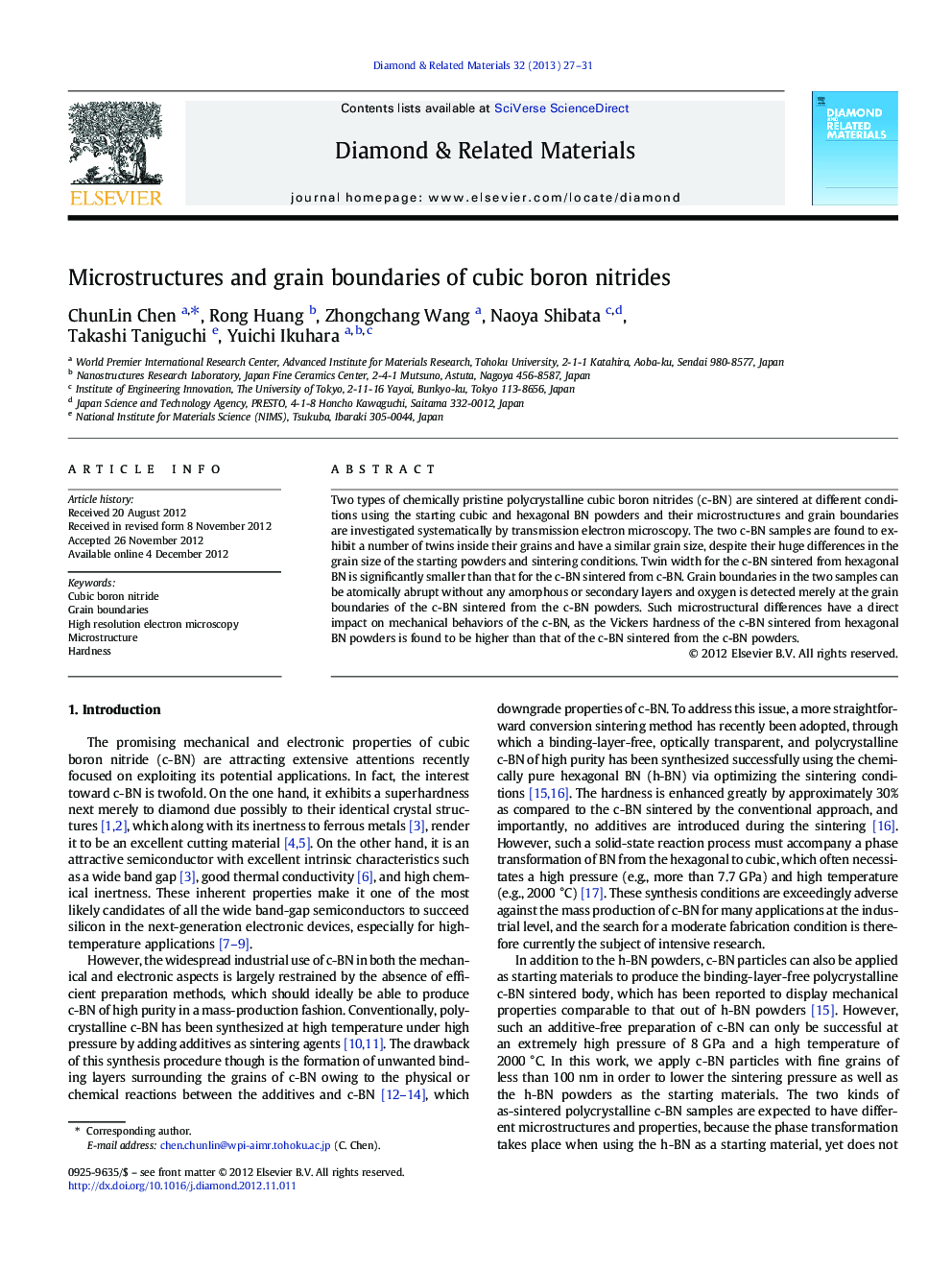| Article ID | Journal | Published Year | Pages | File Type |
|---|---|---|---|---|
| 700765 | Diamond and Related Materials | 2013 | 5 Pages |
Two types of chemically pristine polycrystalline cubic boron nitrides (c-BN) are sintered at different conditions using the starting cubic and hexagonal BN powders and their microstructures and grain boundaries are investigated systematically by transmission electron microscopy. The two c-BN samples are found to exhibit a number of twins inside their grains and have a similar grain size, despite their huge differences in the grain size of the starting powders and sintering conditions. Twin width for the c-BN sintered from hexagonal BN is significantly smaller than that for the c-BN sintered from c-BN. Grain boundaries in the two samples can be atomically abrupt without any amorphous or secondary layers and oxygen is detected merely at the grain boundaries of the c-BN sintered from the c-BN powders. Such microstructural differences have a direct impact on mechanical behaviors of the c-BN, as the Vickers hardness of the c-BN sintered from hexagonal BN powders is found to be higher than that of the c-BN sintered from the c-BN powders.
► Two types of c-BNs are sintered using the starting cubic and hexagonal BN powders. ► Microstructures and grain boundaries (GBs) are investigated systematically by TEM. ► GBs in both c-BNs are atomically abrupt without any amorphous or secondary layers. ► Oxygen is detected merely at the GBs of the c-BN sintered from the c-BN powders.
